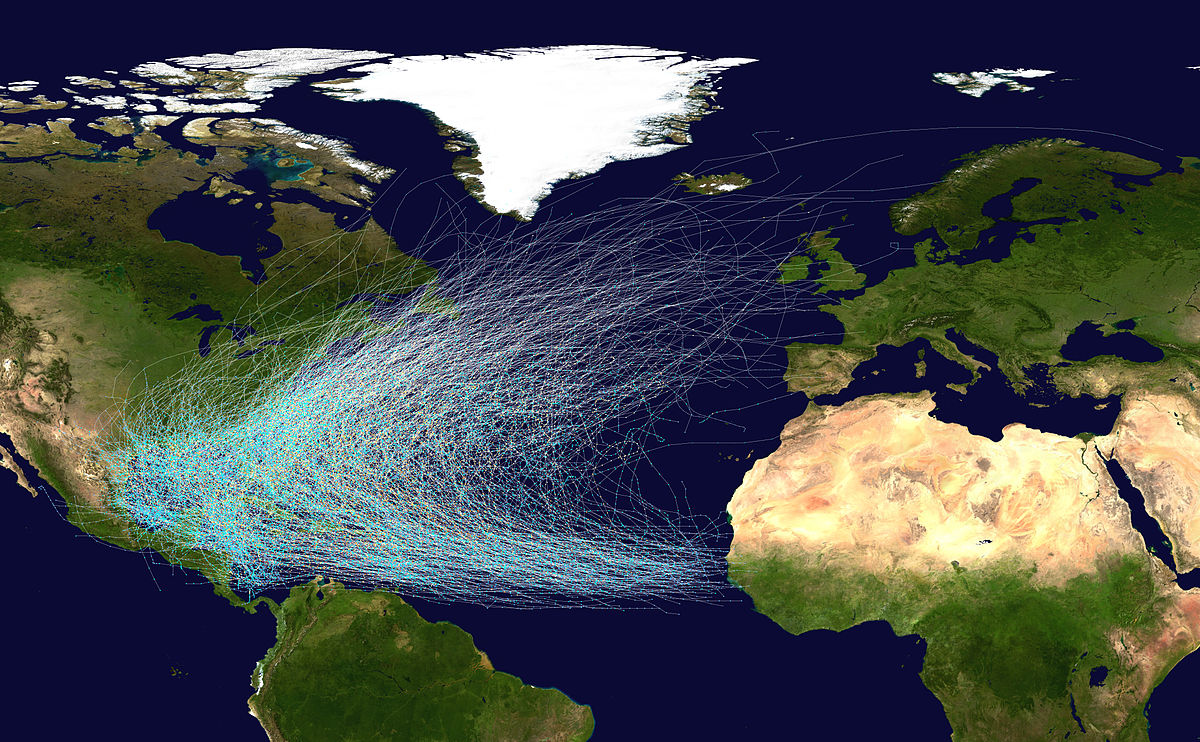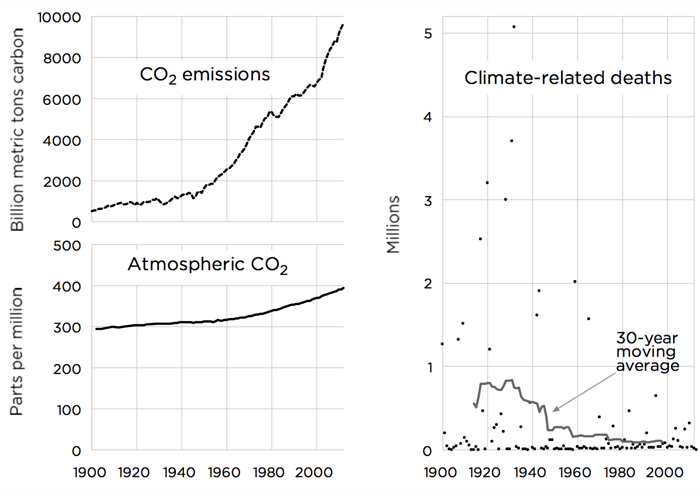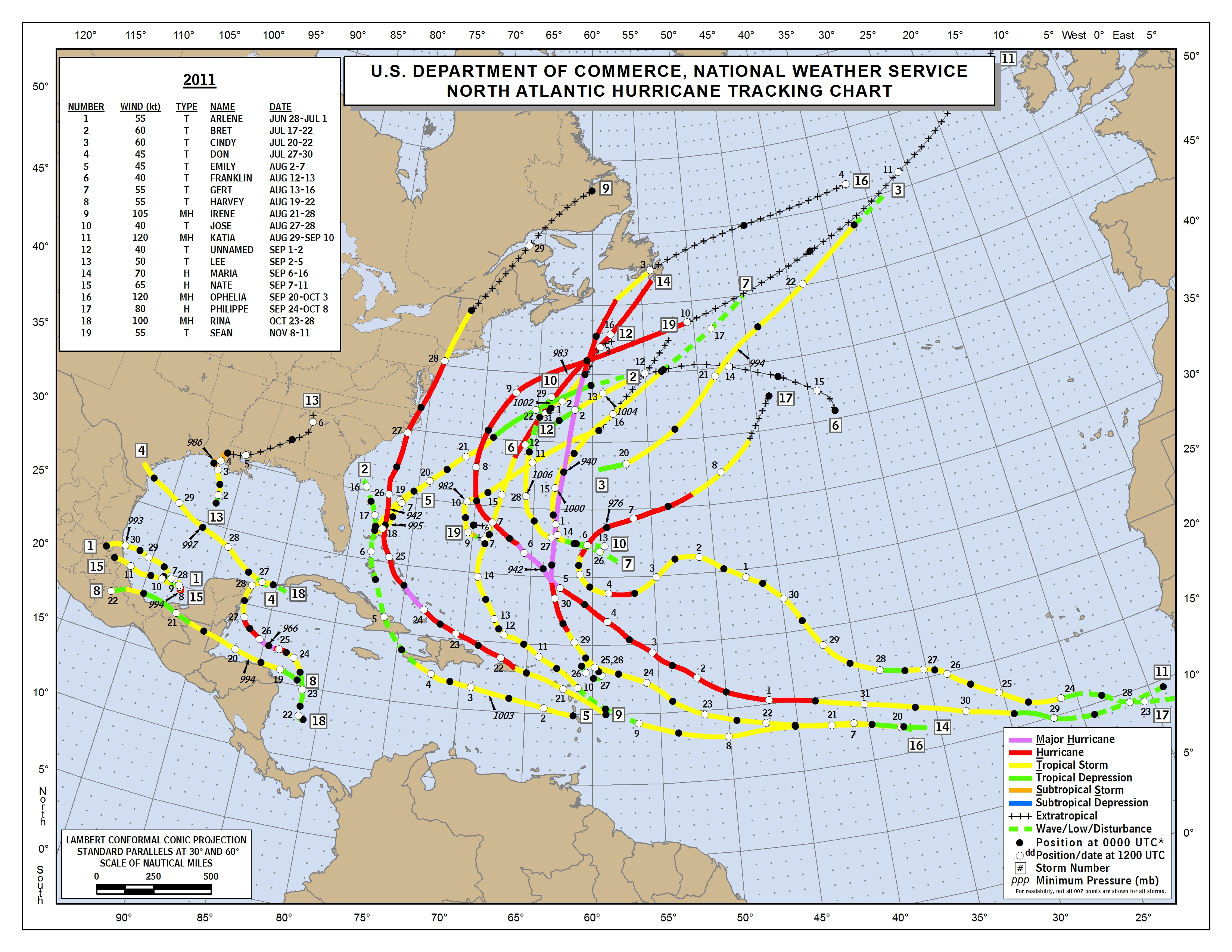Overview

The destructive power of Hurricane Dorian was suggested by those in the media of being yet another example of Climate Change. The claim is that man’s tampering with the environment has caused an increase in the severity and frequency of storms. But does the scientific data back this claim up?
According to Wikipedia, the number of storms in the Atlantic has increased since 1995, but adds that there is no visible "global trend". The implication here is that should Global Climate Change be responsible for an upswing in the number of storms, the effects should be apparent worldwide and not just in one localised area. Notice that the entry does not say by how much the storms have increased by and it also does not account for the rise in our ability to detect these storms, using satellite and other advanced technologies. The next statement from the Wikipedia article appears to back up this summation; the “ability of climatologists to make long-term data analysis in certain basins is limited by the lack of reliable historical data in some basins, primarily in the Southern Hemisphere.” What this is saying is climatologists cannot pull out a global trend from the data because there simply isn’t enough data from which to make robust conclusions. The implication here is that there may actually be a global trend, but that scientists can’t prove it because they don’t have the data. This is what we call an ‘Argument from Silence’.
The Wikipedia entry claims that there is some evidence of the increasing intensity of hurricanes and that climate change could be behind this. In particular, it cites a study by Kerry Emanuel from 2006, which states that the “energy released by(sic) the average hurricane (again considering all hurricanes worldwide) seems to have increased by around 70% in the past 30 years or so…" If Emanuel is attempting to prove that human interference in the climate is behind this increase, then he will need a much longer data sample than a mere thirty years, as that lies within the historic period of human carbon emissions. While the Wikipedia article does cast doubt on this research, claiming “that Emanuel's own research in 2008” appears to have “refuted this theory” and that the trend might be “a figment created by faulty readings from primitive 1970s-era measurement equipment”, the statement still hangs there. “Hurricane strengths have been steadily increasing…” So, should we be worried?

Boden, Marland, Andres (2013); Etheridge et al. (1998); Keeling et al. (2001); MacFarling Meure et al. (2006); Merged IceCore Record Data, Scripps Institution of Oceanography; EM-DAT International Disaster Database
Not according to the Epidemiology of Disasters International Disaster Database (EM-DAT), which is maintained by the U.S. Office of Foreign Disaster Assistance and Centre for Research (OFDA/CRED) and, oddly enough, is based in Brussels. This graph shows a comparison of CO2 emissions and deaths directly linked to climate, climate-related deaths (including droughts, floods, extreme temperatures, wildfires, and storms) going back to 1900. Unlike the climate model data discussed at the start of this page, which - got less accurate the further back you go in time, this data actually gets more accurate. This is because there was less reporting of natural disasters pre-1970s, which means that the drop in deaths over the last 100 hundred years is even more pronounced than expressed in this graph. The argument from silence that was a weakness in Emanuel's case is a strength in this one.
So, if the storms aren’t getting stronger, or more frequent and the number of deaths is going down, is there any truth to the idea that storms are getting more destructive? Well, actually according to the Wikipedia page there is: “Atlantic storms are becoming more destructive financially, since five of the ten most expensive storms in United States history have occurred since 1990.” This statistic seems like something a banker or economist would be more concerned about, rather than a scientist or climatologist, but then again when there are so many links between the IPCC and the Carbon Tax Economy that perhaps we shouldn’t be too surprised. All that's left to consider is; are storms getting more expensive, because on average people are getting wealthier, leading to more expensive property damage? Or has inflation simply driven up wages to the extent that any clean up cost more in the long run? It is probably a bit of both, but rest assured the Carbon Tax won't help with the latter and will continue to drive the price of storms up, while simultaneously doing nothing, whatsoever, to eleviate their affects.

U.S. Department of Commerce, National Weather Service North Atlantic hurricane tracking chart; https://www.nhc.noaa.gov/data/tracks/tracks-at-1971.png


